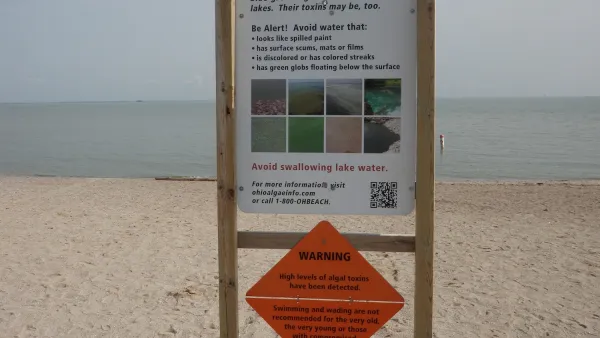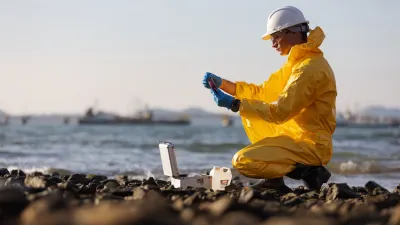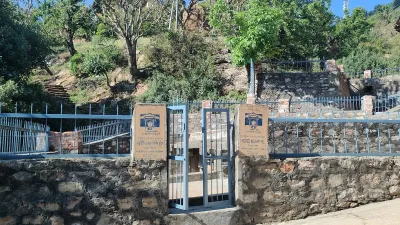The world is facing a water crisis, and existing development and management practices are only making it worse. This interview with water expert Peter Gleick looks at what's being done wrong and how it can be done right.
"A report from the World Economic Forum warned that in only twenty years our civilization may be facing "water bankruptcy"--shortfalls of fresh water so large and pervasive that global food production could crater, meaning that we'd lose the equivalent of the entire grain production of the US and India combined."
"The Nation: One of your points on the soft path is about matching the quality of water with its use so that we are no longer flushing our toilets or watering our lawns with potable water. How can we begin to make this transition?
Peter Gleick: We are making it. The places that are really water scarce are making that transition faster than other places. Water re-use has been going on for many years in Namibia. Singapore is moving very aggressively to something called NEWater, which is a state-of-the-art water treatment that is not used for direct potable re-use right away but for other demands for water. We can treat any quality water to potable standards. We have the technology. There is a psychological barrier and an education barrier and an expense barrier, but we are seeing it more and more. Another barrier is that we have one set of pipes that come into our homes. We don't need potable water for flushing our toilets, but often that is the only water we have. So part of the challenge is changing our infrastructure, so we can use different qualities of water for different purposes. That takes investment: money, time and education.
The Nation: So who should be doing this? Cities? States?
Peter Gleick: In general, we want our water to be managed and regulated at the lowest possible level: the most local. We want communities making decisions about water management, where appropriate. But there are things we want at the federal level--like efficiency standards and water-quality standards. One of the key points of the soft path is to manage water at the proper level."
FULL STORY: A World Without Water

Maui's Vacation Rental Debate Turns Ugly
Verbal attacks, misinformation campaigns and fistfights plague a high-stakes debate to convert thousands of vacation rentals into long-term housing.

Planetizen Federal Action Tracker
A weekly monitor of how Trump’s orders and actions are impacting planners and planning in America.

In Urban Planning, AI Prompting Could be the New Design Thinking
Creativity has long been key to great urban design. What if we see AI as our new creative partner?

King County Supportive Housing Program Offers Hope for Unhoused Residents
The county is taking a ‘Housing First’ approach that prioritizes getting people into housing, then offering wraparound supportive services.

Researchers Use AI to Get Clearer Picture of US Housing
Analysts are using artificial intelligence to supercharge their research by allowing them to comb through data faster. Though these AI tools can be error prone, they save time and housing researchers are optimistic about the future.

Making Shared Micromobility More Inclusive
Cities and shared mobility system operators can do more to include people with disabilities in planning and operations, per a new report.
Urban Design for Planners 1: Software Tools
This six-course series explores essential urban design concepts using open source software and equips planners with the tools they need to participate fully in the urban design process.
Planning for Universal Design
Learn the tools for implementing Universal Design in planning regulations.
planning NEXT
Appalachian Highlands Housing Partners
Mpact (founded as Rail~Volution)
City of Camden Redevelopment Agency
City of Astoria
City of Portland
City of Laramie





























